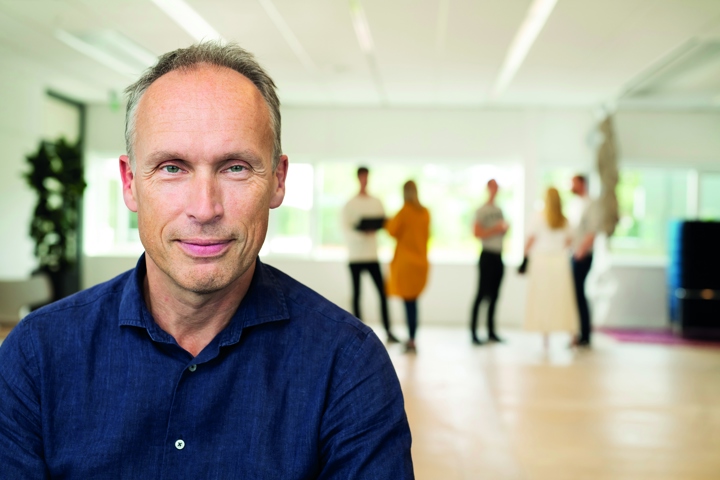
Overcoming supply chain challenges through blended networks
14 January 2022
After the pandemic swept over the world causing a number of supply chain related challenges, the UK is currently experiencing disruption and delays in deliveries of petrol and other essential goods, due to the effects of Brexit. The Link met with Niklas Hedin, CEO of SCC member firm Centiro, to discuss the learnings businesses can take with them from these events, to ensure more resilient and flexible supply chains.
Founded in 1998, Centiro is a Swedish software company and provider of supply chain services, based in Borås and with offices in India, USA and in the UK. With its supply chain network cloud, Centiro connects stores, warehouses and shipping locations with carriers, delivery networks and service providers. “Imagine an e-commerce setup where you sell something to multiple countries. You will need to work with one or several transportation providers. You will want to know if goods arrive on time, as well as stay on top of costs. All of these questions are embodied in our platform, which is there to connect the parties that conduct this trade,” Niklas Hedin, CEO of Centiro explains.
Speed and precision
The move from a retail-wholesale model to a more individualised model, which is driving the need for precision and speed in terms of delivery, started a long time ago, but the pandemic as well as other macro-trends have speeded up this transformation. “This development started almost 20 years ago, but the speed at which it has ramped up is increasing. With current conditions, including disruptions of various kinds, you can no longer build your operations on a static design. You need to be dynamic and agile.”
Digital development – a major driver
Niklas says that the digital development is one of the major underlying factors that is underpinning the consumer drive. “An increasing number of things are going digital and are being connected, which increases transparency and drives choice. We have also learned to rely on the just-in-time principle, which means that we don’t care until we care.” This means that brands, retailers, and industrial companies need to review their supply chains and rebuild warehouse designs to be more responsive.
Choosing sustainable alternatives
Niklas points to a number of macro-level factors, such as climate change, that also act as drivers for this development. “When it comes to deliveries, precision is more important than speed. If you shoot for precision, you can choose more sustainable alternatives. We are heavily invested and use new technologies, like machine learning and AI, and apply these in real-time optimisation scenarios. And I’m very optimistic, because there is a huge drive from the brands and customers to do something better.”
Running out of capacity
During the autumn, the UK experienced major disruptions in the supply of petrol and other essential goods. Although all possible scenarios cannot be foreseen, Niklas says that disruption and delays can be avoided through blended networks. “Last year, Christmas trade in the US was similar and capacity was running out. As a supply chain construct, you need to think about how you cater for differences and build resilience in terms of dynamic capability. Through our platform, you can connect to multiple parties fluently and blend networks in order to get deliveries done.”
Absorbing deviations
Understanding what is critical for business as well as having a proper risk analysis in place to understand how things can break down, are key to managing disruption and uncertainty. “I think a proper risk management with the right architecture and implementation can absorb deviations.”
Macro trends affecting supply chains
Looking into the future, Niklas believes that there are a number of trends that will affect supply chains globally. “We are moving from an almost completely globalised to a more regionalised world, with geopolitical questions and trade barriers being raised. Also, sustainability has been on the radar for years, but it has moved into a different intensity and level of awareness. In a couple of years’ time, the consumer is going to say that ‘if it’s not sustainable, I’m not going to buy it’. What is ‘nice to have’ right now or even politically correct, is going to be an absolute requirement in two to three years’ time.”
New initiatives in the pipeline
Centiro is now working together with its customers on several initiatives to improve its services and to make them more sustainable. Niklas can’t share all the details just yet but says they will “continue to connect the world more fluidly and faster, definitely with climate change as part of the job.”
“How can we make the delivery networks more friendly to the climate? This is one of the questions we are currently working on. We have things in the garage, which haven’t rolled out yet, and that’s going to be future news.”
Join our mailing list
and keep up-to-date with the Chamber's news and events.
Read our Privacy Policy here